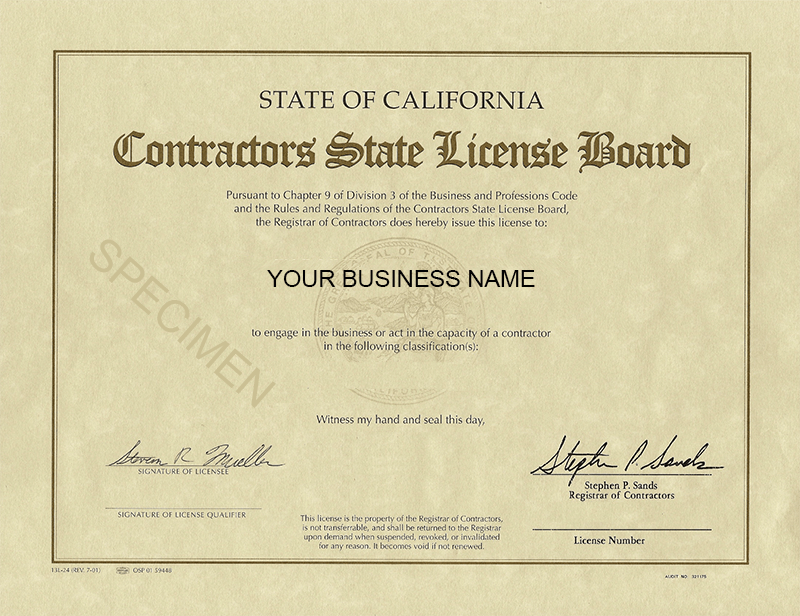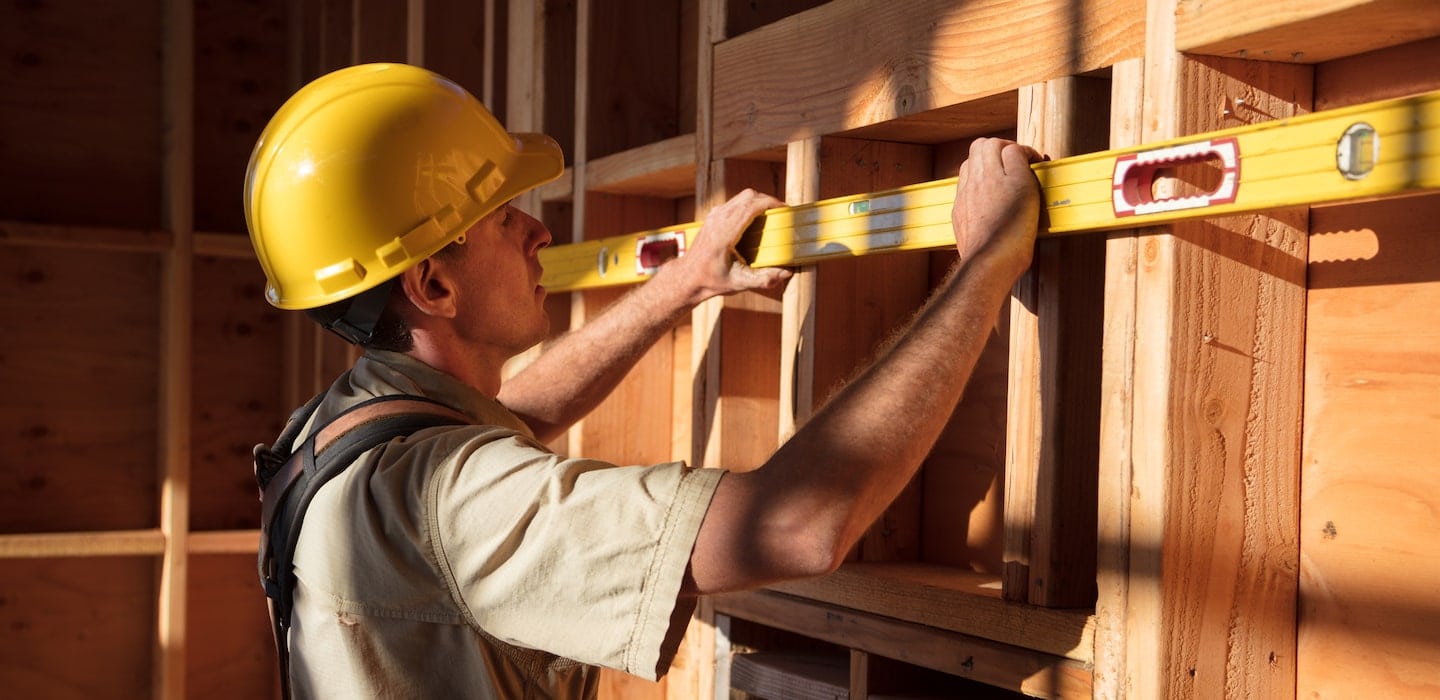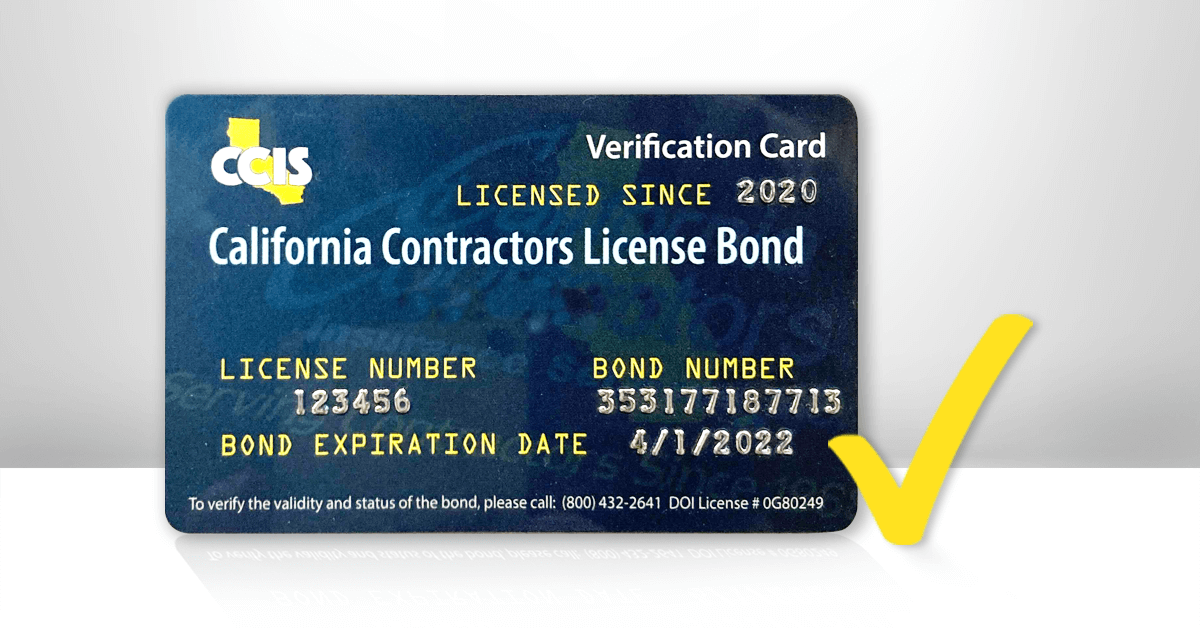CA General Contractor License: Requirements & How To Get It!
Ever dreamt of building your own empire in the Golden State's booming construction industry? Securing a California general contractor license is your essential first step, paving the way for a lucrative and fulfilling career. But navigating the licensing process can seem daunting. This guide breaks down the key steps and requirements, turning your ambition into a tangible reality.
California's construction sector is a powerhouse, offering immense opportunities for skilled contractors. A general contractor license isn't just a piece of paper; it's a statement of competence, professionalism, and adherence to the state's stringent standards. It allows you to bid on larger projects, hire subcontractors, and ultimately, build a thriving business. However, obtaining this license requires careful planning, diligent preparation, and a thorough understanding of the California Contractors State License Board's (CSLB) regulations.
| Category | Details |
|---|---|
| License Types | California offers two primary types: Class A (General Engineering Contractor) and Class B (General Building Contractor). Choose the one that aligns with your expertise. |
| Qualifying Individual Requirements | Must be 18 or older with a valid Social Security Number or Individual Taxpayer Identification Number. |
| CSLB Classifications | The CSLB offers 44 classifications, ranging from general engineering to specialty trades. Selection depends on the intended work. |
| Reciprocity | California has reciprocity agreements with Arizona, Louisiana, and Nevada. Licenses must match and have been held for at least five years. |
| Further Information | Consult the California Contractors License Law & Reference Book for specific laws. California Contractors State License Board (CSLB) |
The CSLB is the governing body responsible for licensing and regulating contractors in California. They offer 44 distinct classifications for general contractor licenses, ranging from general engineering contractors, who handle large-scale infrastructure projects, to specialty trades contractors, who focus on specific areas like plumbing, electrical work, or HVAC. Carefully consider your skills and experience to choose the classification that best suits your intended scope of work. Trying to operate outside your licensed classification can lead to severe penalties, including fines and license suspension.
- Vega Movies Where To Watch Online Streaming Guide
- Allison Ford From Coyote Ugly To Grand Theft Auto Beyond
Each contractor license classification has specific requirements for experience and education. While a formal education in construction management or a related field can be beneficial, practical experience is paramount. The CSLB typically requires a minimum of four years of journey-level experience in the classification you're applying for. This experience must be verifiable and obtained within the ten years immediately preceding your application. You can demonstrate this experience through pay stubs, contracts, letters from employers, or other relevant documentation. Be prepared to provide detailed information about the projects you've worked on, your specific role, and the skills you've acquired.
To be eligible for a California general contractor license, you must meet certain basic qualifications. You must be at least 18 years old and possess a valid Social Security Number (SSN) or Individual Taxpayer Identification Number (ITIN). The CSLB conducts thorough background checks, so it's crucial to be honest and transparent throughout the application process. Any prior criminal convictions or disciplinary actions related to contracting work can impact your eligibility. However, these issues aren't always disqualifying, and the CSLB will consider the nature of the offense, the time elapsed, and any evidence of rehabilitation.
Obtaining a California contractor license involves several key steps. First, you'll need to gather all the necessary documentation, including proof of experience, educational transcripts (if applicable), and identification documents. The CSLB provides a detailed application packet with specific instructions and forms. Once your application is complete, you'll submit it to the CSLB along with the required fees. The CSLB will review your application to ensure you meet all the eligibility requirements. This review process can take several weeks or even months, so it's essential to be patient and responsive to any requests for additional information.
- Hdhub4u Is It Safe Legalities Risks Movie Alternatives
- Justine Batemans Children All About Duke Gianetta
After your application is approved, you'll be scheduled to take the California contractor license exam. This exam consists of two parts: a business and law exam and a trade-specific exam. The business and law exam covers topics like business management, financial management, labor laws, safety regulations, and contract law. The trade-specific exam focuses on the technical knowledge and skills required for your chosen classification. The CSLB provides study guides and practice exams to help you prepare. Consider enrolling in a contractor licensing course or workshop to enhance your understanding of the material and improve your chances of passing.
Passing the California contractor license exam is a significant accomplishment, but it's not the final step. Before your license can be issued, you'll need to fulfill several other requirements. You'll need to undergo a criminal background check, which typically involves fingerprinting. The CSLB uses this background check to ensure that you meet the state's moral character requirements. You'll also need to provide proof of bonding and insurance. A contractor's bond protects consumers from financial losses caused by your negligence or failure to comply with contract terms. You'll also need to obtain general liability insurance to cover potential damages or injuries that may occur on your job sites.
California has reciprocity agreements with Arizona, Louisiana, and Nevada, which allow contractors licensed in those states to obtain a California license without having to take the full exam. However, certain conditions must be met. Your license must be in good standing in the reciprocal state, and it must match one of California's reciprocal classifications. You must also have held the license for at least five years. If you meet these requirements, you can apply for a reciprocal license through the CSLB's expedited process.
Even after you obtain your California contractor license, it's essential to stay informed about changes to the laws and regulations governing the construction industry. The CSLB regularly updates its rules and policies, and it's your responsibility to comply with these changes. Failure to do so can result in disciplinary action, including fines, license suspension, or even revocation. You can stay up-to-date by subscribing to the CSLB's newsletter, attending industry conferences, and consulting with legal professionals specializing in construction law.
The California Contractors State License Law & Reference Book is an invaluable resource for contractors operating in the state. This comprehensive guide contains all the laws, regulations, and policies related to contractor licensing and operations. It covers topics like bidding requirements, contract provisions, payment procedures, and dispute resolution. The book is updated regularly to reflect changes in the law, so it's essential to have the latest edition. You can purchase the book from the CSLB or from various online retailers.
It's important to remember that the fact that a complaint has been filed against a contractor and referred for legal action doesn't automatically mean the contractor has violated California contractors' state license law. The legal process must run its course, and no conclusions or judgments about the validity of the charges should be made until the legal action has been completed. Contractors are entitled to due process and the presumption of innocence until proven guilty.
Obtaining and maintaining a California general contractor license is a significant investment of time and resources. However, it's an investment that can pay off handsomely in the long run. A valid license opens doors to new opportunities, enhances your credibility, and allows you to compete for larger and more profitable projects. By understanding the requirements, following the procedures, and staying informed about the laws, you can successfully navigate the licensing process and build a thriving construction business in the Golden State.
California offers two primary types of contractor licenses: Class A (General Engineering Contractor) and Class B (General Building Contractor). The Class A license allows you to work on projects that involve fixed works requiring specialized engineering knowledge and skill, such as highways, bridges, dams, and tunnels. The Class B license allows you to work on projects involving the construction or remodeling of buildings or structures. It's crucial to choose the license that best aligns with your expertise and career goals. Applying for the wrong license can result in delays and additional expenses.
To obtain a contractors license in California, you must meet the basic qualifying individual requirements and submit an application to the Contractors State License Board (CSLB). The qualifying individual is the person who possesses the necessary knowledge and experience to manage the daily activities of a construction business, including field supervision. This person can be the owner of the business, a partner, or a responsible managing employee (RME). The qualifying individual must pass the licensing exam and be responsible for ensuring that all work is performed in accordance with state and local regulations.
Then, youll need to complete a criminal background check, pass the licensing exam, and provide proof of bonding and insurance. The criminal background check is required to ensure that you meet the state's moral character requirements. The licensing exam assesses your knowledge of business and law, as well as your technical skills in your chosen classification. The bonding and insurance requirements protect consumers from financial losses caused by your negligence or failure to comply with contract terms. Meeting all these requirements is essential for obtaining and maintaining a California general contractor license.
Beyond the fundamental requirements, aspiring contractors should consider leveraging platforms like Houzz Pro to enhance their business operations. Houzz Pro offers a comprehensive suite of tools tailored for remodeling, build, and design professionals, streamlining project management, client communication, and marketing efforts. Integrating such platforms into your business strategy can significantly boost efficiency and client satisfaction, ultimately contributing to your long-term success in the competitive California construction market.

Contractors License Exam Requirements and Fees

California general contractor license requirements

Supreme Tips About How To Become A General Contractor California